April CSDi Newsletter
Special Issue: Climate Smart Agriculture
Climate Smart Ag | S. Sudan | Tanzania | St. Lucia | Kilimanjaro | Mozambique | Soil Stewardship | CBA Resources
Special Issue: Climate Smart Agriculture
Climate Smart Ag | S. Sudan | Tanzania | St. Lucia | Kilimanjaro | Mozambique | Soil Stewardship | CBA Resources
THIS MONTH’S NEWS
The theme of this month’s newsletter has a special focus on climate smart agriculture for smallholder farmers to address the fact that so many partner projects have a basis in challenges with agriculture for subsistence farmers.
| South Sudan | |
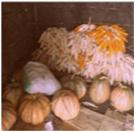 |
Piotr Barkzak (Poland/Belgium/South Sudan) was called to South Sudan in the fall. Poitr is an environmental lobbyist in Brussels—but also has experience working in Africa.
He has been working on a project in Jonglei State developing an ecologically sensitive agricultural program for 60 farming families. He prepared a brief final report in English in March for those of us in the CSDi community to enjoy. Here is a link to his report so that you can learn more about his project and look at a greater range of photographs. |
| Tanzania |
Adaptation Through Conservation Agriculture |
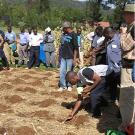 |
Chris Enns (Canada), has been working on a project in the community of Wagete in the Region of Mara, Tanzania. 4,000 community members are suffering from reduced crop yields due to unpredictable weather patterns related to climate change. Chris launched a farmer soil and water conservation program, and led a very comprehensive conservation agriculture workshop. You can link to a report of the workshop complete with detailed photographs of the conservation agriculture techniques they used.
|
| Saint Lucia |
Adaptation, Agriculture and Livelihoods |
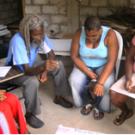 |
Brenda Wilson (Saint Lucia), has been working on a project in the community of La Pointe, Micoud, St. Lucia. Households are suffering from low incomes from reduced crop production due to changes in weather patterns bringing extreme weather events such as hurricanes, and an increasingly unpredictable beginning and end to rainy season.
Brenda recently completed the development of a community Climate Smart Agricultural Community Management Committee. Download Brenda’s report.
|
| Mozambique | Finding Climate Smart Agricultural Solutions to Famine |
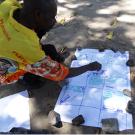 |
Phipps Campira (Mozambique), Zipo Akinyi (Kenya/New Zealand), and Lenneke Knoop (The Netherlands) have been working on a project in the community of Mezimbite, Mozambique. 566 households (3,400 people) are frequently suffering from famine caused by a lack of knowledge of improved agricultural practices and climate change related unpredictable rain and extreme weather events.
The team developed this project outline to increase crop production, reduce malnutrition, improve food security, and reduce mortality rates among children and the community. Download their scientific research on project activity effectiveness. |
| Kilimanjaro | Extreme Weather Events and Recurring Drought Create Food Insecurity for 1300 Households |
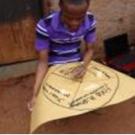 |
Since 2007 there has been severe drought and crop failure in the Kilimanjaro region—mostly in Moshi rural, Rombo, and Lower Hai and Mwanga districts. This has led to difficult livelihood challenges among community members; housing and food security are also challenges.
Minja Gileard Sifuel (Tanzania), Gemi Montecchi (Italy) and Ellen deGuzman (US) have been developing a project which includes a soil restoration program, a home gardening for nutrition program, and a soil and water resources management program. Read more about the challenges this community faces that this team have come up with.
|
| May Field Guide | Managing Soil and Water on Sloping Agricultural Terrain |
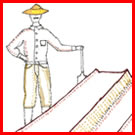 |
Subsistence farmers suffer not only from depleted soils but from challenges with water: too little water, too much water, and erosion from water. This field guide looks at different ways of developing barriers on farm fields for reducing the flow of water so that it can percolate into the soil and build up soil moisture. The barriers also reduce soil erosion. Topsoil suspended in water settles behind the barriers creating level terraces. These low cost/no cost techniques can be incorporated into farm fields over the span of time—spreading the workload.
This field guide includes detailed descriptions and illustrations of barriers to water movement. Download.
|
| OL 333 CSA News | Update on Climate Smart Agriculture Course |
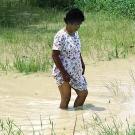 |
Climate Smart Agriculture. Launched nine months ago, Climate Smart Agriculture has attracted course participants from North America, the Caribbean, Africa, the South Pacific, Asia, the Middle East, Latin America and Europe. Needs assessments illuminated challenges including depleted soils, access to water, flooding, and a lack of coping strategies for adapting to a changing climate.
Soil restoration techniques, and buffering techniques against extended dry spells and unpredictable seasons were evaluated to match the most appropriate for the community’s context and their capacity for long lasting sustainability.
|
| Spring Quarter | Courses Begin May 7. Are you interested in: |
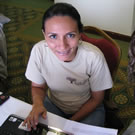 |
Would you like to learn how to develop Community Based Adaptation Projects?
What’s happening in the region where you live?
Please write us with your stories, thoughts and comments through Online.Learning@csd-i.org
Please write us with your stories, thoughts and comments through Online.Learning@csd-i.org
I look forward to hearing from you.
Sincerely,
Tim Magee, Executive Director
Would you like to subscribe to this newsletter?
The Center for Sustainable Development specializes in providing sound, evidence-based information, tools and training for humanitarian development professionals worldwide. CSDi is a 501(c)(3) nonprofit organization.